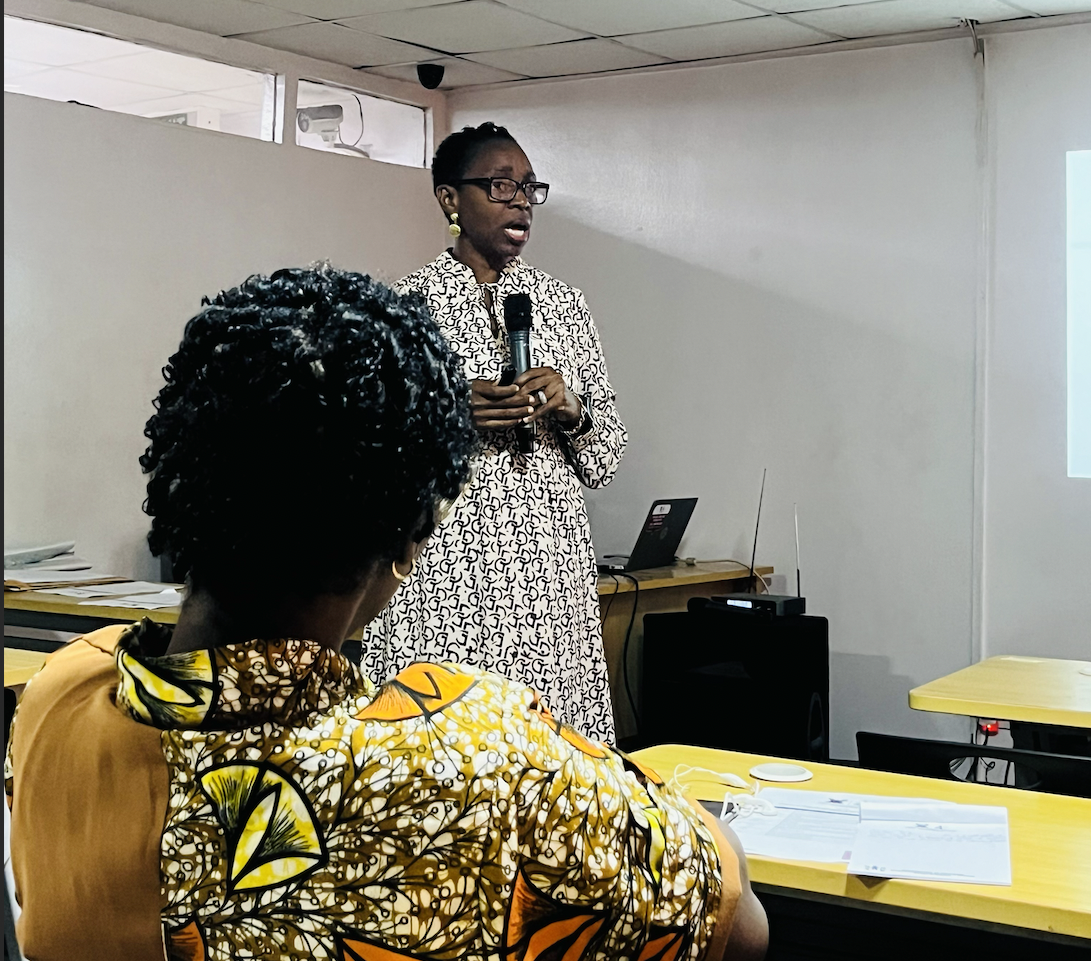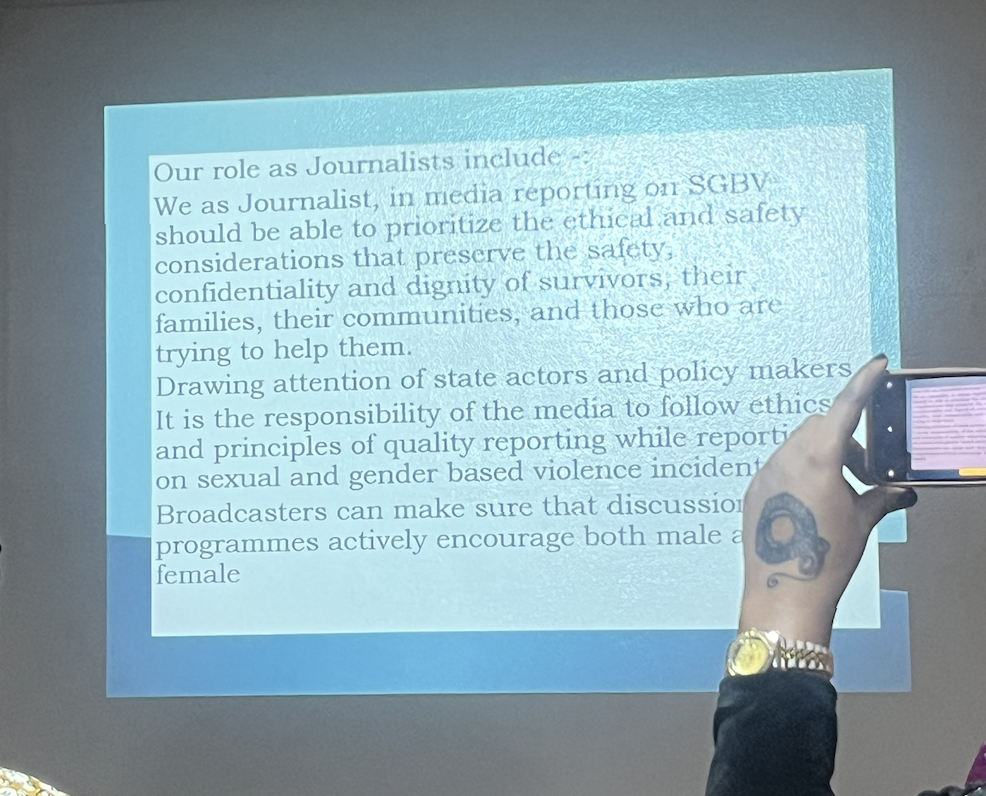Features
Your Go-To Guide to Reporting Issues of Gender-Based Violence
Last week, I attended a media training on investigating and reporting sexual and gender-based violence crimes, organised by Lagos State Domestic and Sexual Violence Agency (Lagos DSVA). The training aimed to arm media practitioners with the necessary knowledge and skills to report on sensitive issues, especially on gender and violence effectively and responsibly.
As of last year, the Domestic and Sexual Violence Agency recorded almost 6,000 cases of gender-related violence, and are recording an average of 250 cases monthly. 91 per cent of these survivors are female and nine per cent are male. For children, 45 per cent of survivors are boys and 55 per cent are girls. Meanwhile, these are just cases that have been reported to DSVA. This shows that cases of gender-based and sexually related violence are quite prevalent in our society. Thus, we must shine a light on issues like this for survivors to get justice. But in shining the light, we must also learn to report these stories in ways that do not bring survivors to ridicule; in ways that do not shame them for whatever happened. And in ways that do not make them a target for cyber and physical bullying. That is why in this time and age, I find training like this useful and timely. While this training was for media practitioners, I believe in one way or another, we are all media people. From the way you share news about survivors on social media to the videos you record, and the news stories you amplify, we are responsible for reporting and amplifying these stories as responsibly as we can.
So I’ll be sharing tips to help you report stories like this, both as a media practitioner and as someone who has a smartphone and uses social media, all learned from the training.
Report from the survivor approach
One common mistake we make is handing the mic over to the perpetrator on many occasions while the survivor is silenced. Ever been tempted to say “I want to hear his side of the story” when a man rapes a woman or when a husband beats his wife to death? There, you’re giving the perpetrator a microphone. If you’re also fond of saying “She must have done something” when you hear that a woman is a victim of gender-based violence, you’re subconsciously supporting violence. Rather, what do you do? Tell the survivors’ stories. Remember that crimes fester in darkness so bring their stories to light, and do so from a point of empathy. Remember that the essence of your reportage is to help them get justice. And they won’t get this justice if your reportage is already exonerating the perpetrator.
Don’t water down language
When reporting about gender-based violence, don’t write or say (as the case may be) things like “The 35-year-old xxx slept with (or had sex with) a 17-year-old xxx.” When an adult ‘sleeps with’ a minor, it is called rape. The best way to report this is to use the right terminologies, “The 35-year-old xxx raped the 17-year-old xxx.” Using “slept with,” “had sex with” “knew her intimately,” and so on are you making the crime sound less grievous than it is.
Respect survivors’ privacy
When reporting issues of gender-based violence, it is important not to give information that could jeopardise the safety of survivors. Their photos should be protected and certain information like their names, residential addresses, family members, areas where they live or work, phone numbers, email addresses, and so on, should not be exposed. It is important not to give out personal information through which people can trace or attack victims. Avoid details that will cause them more harm and be ethical even as you report.
Don’t bully survivors into having interviews with you
While it is important to bring these stories to light, it is equally important to be ethical while at it. If survivors are not ready to talk about their ordeal, leave them be. Don’t hound or bully them into talking to you, or offer them money to have exclusive interviews with you. Don’t pay their family members or close relatives to also talk to you about the survivor. Respect their privacy for as long as they want.
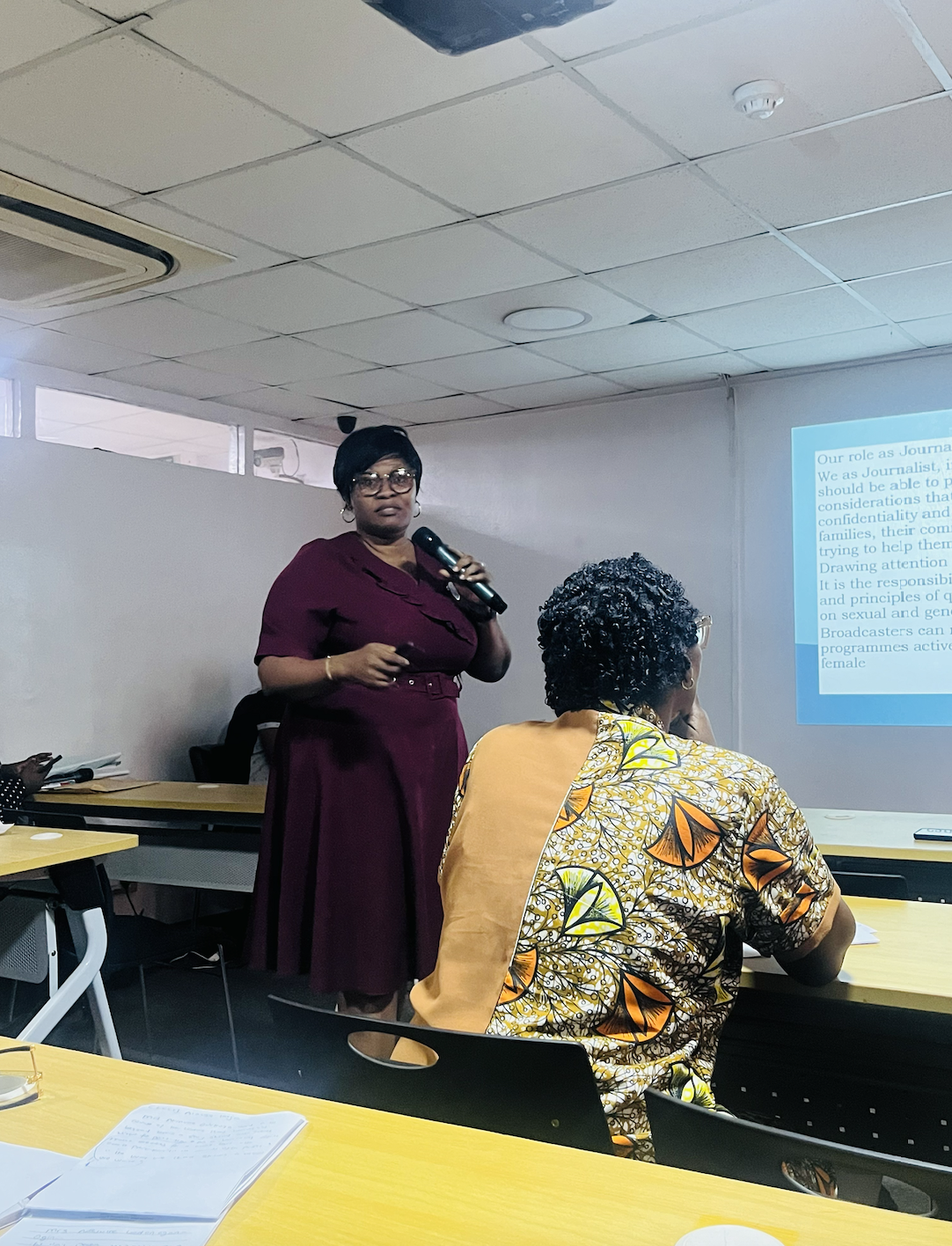
Things you must learn/unlearn as a journalist
Social norms
The idea that men and women must be in certain ways, according to the expectations society has placed on them, needs to be unlearned, and not reflected in the way we report. In reporting, we must respect everybody’s individualism and understand that people can act how they want, especially if they’re not breaking the law. We must learn to throw our biases into the abyss and report from a place of objectivity.
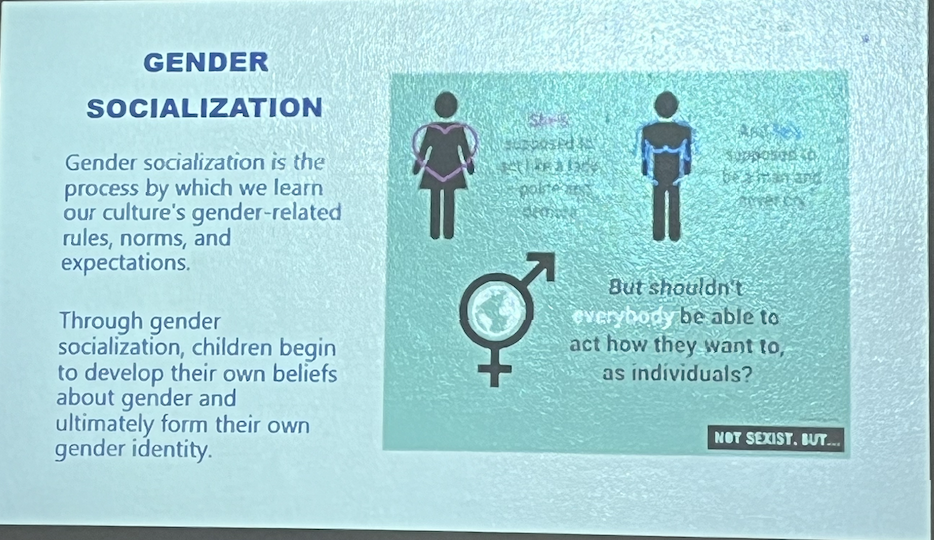
The idea that survivors had a role to play in their abuse
During the lecture, someone asked, “We know abuse is bad but what of those people that dress scantily, wearing crop tops and all?” To which the facilitator responded by telling us to realise no one should feel entitled to people’s bodies simply because they have chosen to wear what they’re comfortable in. Every one of us humans must learn self-restraint and self-control, and must learn not to blame other people for our lack of both. Understanding this, as media practitioners, will help us report these stories better, and not report in ways that suggest survivors may/may not have been at fault.
An example of reports that are suggestive of victim-blaming is, “Eyewitnesses say that the victim was found in a lonely part at ungodly hours and was wearing a skirt above her knees.” Details like this suggest that the victim may have been assaulted because they were dressed in a mini-skirt or walking down a lonely path. We need to check our biases at all times and unlearn them, so they don’t seep into our reportage.
How to get help from DSVA
The Lagos State Domestic and Sexual Violence Agency (Lagos DSVA) has a list of dedicated police stations and contacts dedicated to investigating cases of GBV. If you need help, please contact the numbers below. If you also know anyone who needs help, please share this with them.
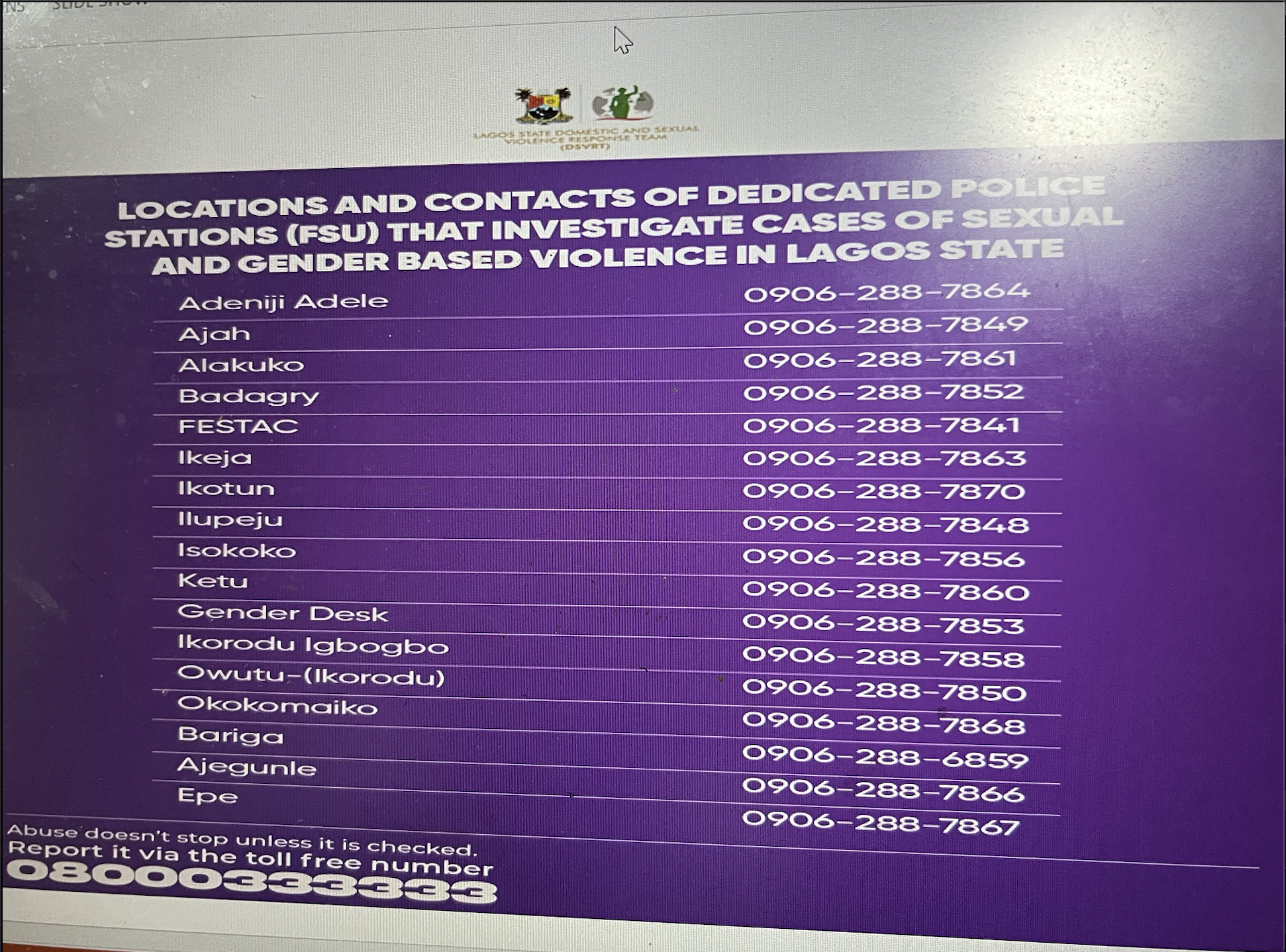
As journalists, we can help curb gender-based violence by reporting with fairness and accuracy. Also remember that we have a duty to inform and educate the public, and we can only do so when we keep on learning, unlearning and relearning. Don’t be scared to question norms and beliefs, and confront your bias. Only then can we truly inform, educate, and bring the much-needed change.
***
Feature Image by Yan Kruko on Pexels


